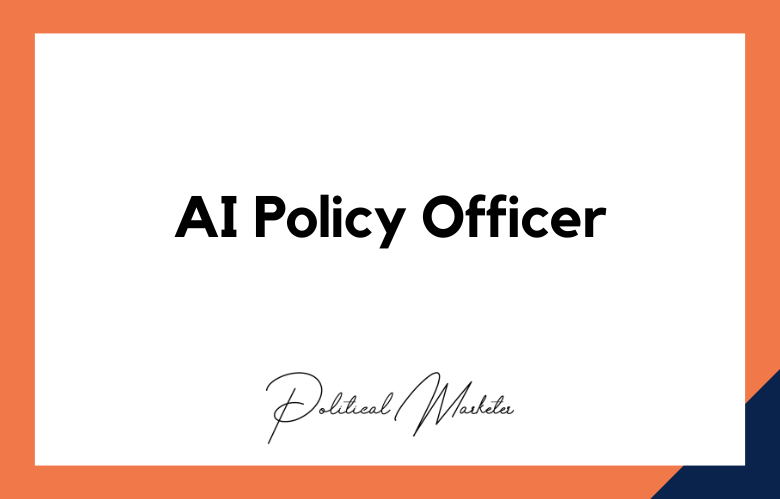In the internet age, our online reputation is just as important as our offline reputation. This is especially true for politicians whose reputations can be made or broken in the court of public opinion on social media and other online platforms. We will look at the evolution of online political reputation management and how it has changed from the past to the present.
The Evolution of Online Political Reputation Management: Past to Present
The concept of online reputation management for politicians wasn’t even on the radar until the early 2000s when the internet and social media were still in their infancy. At that time, politicians and their campaign teams had to deal with traditional forms of media, like television and newspapers. However, as social media became more popular, politicians quickly realized they needed a solid online presence and be active on platforms like Twitter and Facebook.
From Burning Emails to Social Networking: A Timeline of Online Political Reputation Management
The advent of the internet brought about significant changes in how political reputation management is carried out. Over the years, online political reputation management has continuously evolved, ranging from burning emails to social networking. This timeline provides an in-depth look into the evolution of political reputation management over time.
Burning Emails – The early 2000s marked the era of burning emails, where political organizations resorted to burning their emails to prevent opponents from getting hold of sensitive information. This technique was used by several political organizations and was seen as an effective way of managing political reputation.
The Digital Campaign Trail: How online reputation management has transformed politics.
In today’s digital age, political campaigns have undergone a dramatic transformation. Online reputation management has become integral to any campaign strategy, rivaling traditional television advertising and door-to-door canvassing methods. Politicians with abundant social media platforms constantly seek to maintain an effective online presence and engage with potential voters.
Online reputation management has not only revolutionized the way political campaigns operate but has changed the very nature of political discourse. Politicians can now tailor their messages to specific demographics and use data from various online platforms to shape their campaign strategies. The extensive reach of the internet and its ability to instantly transmit information mean that any misstep, no matter how small, can cause significant damage to a politician’s reputation.
Virtual Spin Doctors: The Evolution of Online Political Reputation Control
In today’s digital age, online platforms have become an integral part of political discourse, making it essential for politicians and their teams to maintain a positive image online. As a result, online reputation control, also known as spin doctoring, has evolved into a virtual form, commonly known as “Virtual Spin Doctors.”
These Virtual Spin Doctors use numerous strategies to maintain their positive reputation, including social media marketing, search engine optimization (SEO), and content creation. Through these techniques, political entities can influence public opinion and shape narratives regarding their activities, becoming the information source for the general public.
A Reputation Resurrected: How Politicians Revamped Their Online Image
In recent years, it has become apparent that politicians’ online reputation is crucial to their electoral success. Many have recognized this and have sought to revamp their online image. Here are some of the ways politicians are doing just that.
Firstly, politicians are actively seeking to improve their social media presence. They hire teams of professionals to manage their social media accounts, ensuring that their online image remains consistent and professional.
This entails posting high-quality photos, engaging with followers, and actively listening and responding to their concerns. For instance, Barack Obama’s social media team was renowned for its agility and responsiveness, which were instrumental in his success in the 2008 and 2012 presidential campaigns.
The Rise of the Digital Army: Online political reputation management in the 21st century.
In the 21st century, political reputation management has reached new heights with the rise of the digital army. This army consists of teams of professionals who specialize in creating and managing a positive online presence for politicians and political campaigns. This has become especially important as the internet has become a primary source of information for voters.
Political reputation management can range from promoting a candidate’s achievements and policies to countering negative information and attacks from opponents. The digital army employs many strategies to achieve this, including search engine optimization, social media management, content creation, and online advertising.
Online Political Crisis Management: Adapting in the Age of Twitterstorms
In today’s digital age, social media platforms have empowered users to communicate quickly and directly with a global audience. Twitter effectively lets users converse about current events and news stories that flood their feeds in real-time. From natural disasters to political upheavals, any topic can quickly turn into a Twitterstorm – an online crisis that can seriously impact individuals, organizations, and nations.
Political events have become increasingly susceptible to Twitterstorms, with politicians often finding themselves at the center of such storms. Politicians cannot afford to ignore this phenomenon and must instead learn to adapt in the age of Twitterstorms. This adaptation requires an effective online political crisis management strategy that must be in place to mitigate the negative impact of Twitterstorms.
Propaganda to Public Relations: The changing face of online political reputation.
In recent years, the shift from traditional propaganda techniques to online public relations strategies has significantly influenced the way political figures and organizations seek to manage their digital reputation.
The rise of social media as a platform for political discourse has given politicians unprecedented access to their audiences, but this increased exposure can come at a cost. With the proliferation of fake news and the ability of politicians to manipulate media narratives, online reputation management has become essential for political success.
One notable example of this shift can be seen in the 2016 US presidential election, where allegations of Russian interference demonstrated how misinformation campaigns and propaganda can influence public opinion. This instance has highlighted a growing concern about controlling online political reputation.
Conclusion:
As we have seen, online political reputation management has come a long way in just a few short years. Today, politicians must navigate social media platforms, analyze data, and respond quickly to crises.
With the upcoming 2022 midterm elections in the US, we can expect online reputation management to play an even more critical role in the political landscape. As we enter the digital age, candidates who can effectively manage their online reputation will have a significant advantage over those who cannot.
Call: +91 9848321284
Email: [email protected]
The Evolution of Online Political Reputation Management: FAQs
What Is Political Reputation Management?
Political reputation management refers to the strategic efforts made by politicians or parties to influence and maintain a favorable image across online and offline platforms.
How Has Political Reputation Management Evolved?
It has shifted from traditional PR and press briefings to real-time online monitoring, digital crisis response, and AI-powered sentiment analysis.
Why Did The Shift To Online Reputation Management Happen?
The rise of social media, instant news, and digital misinformation made it essential for campaigns to monitor and manage reputations proactively and continuously.
What Role Did Traditional Media Play In Early Reputation Management?
Television, print, and radio shaped public perception through editorials, debates, and press conferences, allowing political figures limited control over narratives.
How Has Social Media Changed Political Reputation Management?
It has made reputation management faster, more dynamic, and two-way; politicians can now directly engage with the public and face real-time backlash.
What Are The Biggest Online Reputation Risks For Politicians Today?
Risks include viral misinformation, deepfakes, cancel culture, hacked social accounts, and coordinated smear campaigns.
How Can Politicians Monitor Their Online Reputation In Real Time?
Using tools like Google Alerts, Brand24, Talkwalker, and social listening platforms helps detect mentions, sentiment shifts, and potential crises early.
What Role Does AI Play In Political Reputation Management Today?
AI helps analyze public sentiment, flag risky narratives, recommend crisis responses, and draft proactive messaging strategies.
How Do Political Campaigns Handle Online Crises Effectively?
They prepare rapid-response protocols, designate spokespersons, swiftly correct false narratives, and issue verified statements across official channels.
What Is The Importance Of Personal Branding In Reputation Management?
A strong personal brand builds public trust, ensures message consistency, and helps politicians weather negative news cycles more effectively.
How Can Search Engine Results Impact A Political Figure’s Reputation?
Negative search results, outdated controversies, or misleading articles appearing at the top can damage public perception and influence voter sentiment.
What Is Reverse SEO And How Does It Help?
Reverse SEO involves reducing negative content in search engine results by promoting positive, high-authority content that outranks the undesirable links.
How Important Is Wikipedia In Online Political Reputations?
Very important—Wikipedia pages are obvious in Google searches and often shape first impressions, requiring accurate and balanced content management.
What Techniques Are Used To Build A Positive Online Image?
Publishing interviews, success stories, thought leadership pieces, testimonials, and maintaining verified, active social media accounts helps build credibility.
How Do Political Consultants Use Reputation Audits?
They assess current sentiment, identify vulnerabilities, analyze media exposure, and develop action plans for improving or defending reputations.
Can Online Reputation Management Affect Election Outcomes?
Absolutely. A well-managed digital image influences undecided voters, counters opposition narratives, and enhances trust during key electoral moments.
How Has The Role Of Influencers Evolved In Political Reputation?
Influencers now act as modern-day endorsers—amplifying narratives, defending reputations, or criticizing candidates in ways that sway digital audiences.
What Is The Impact Of Viral Content On Political Reputations?
Viral videos or posts—whether positive or negative—can shape perceptions overnight, making reputation management a 24/7 responsibility.
How Do Politicians Manage Reputation Across Multiple Platforms?
Aligning messaging, monitoring feedback loops, and using centralized digital teams or agencies to ensure consistency and responsiveness.
What’s Next For Political Reputation Management In The Digital Age?
The future includes deeper AI integration, predictive reputation modeling, blockchain-backed authenticity verification, and personalized voter interaction strategies.










